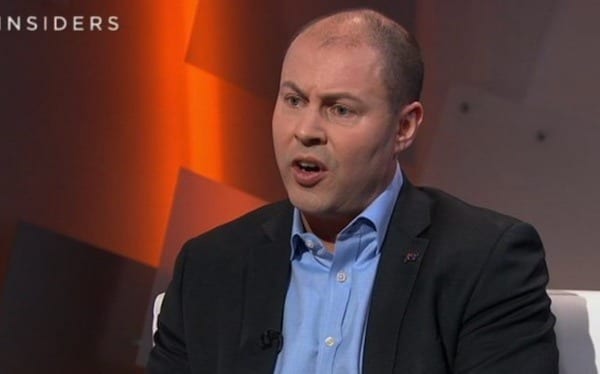But that’s despite the Liberal National Party not showing any major indicators of progress for making it happen, and the fact that less than a quarter of its current federal MPs are female — a 15 year low.
And getting to 50/50 in just seven years? There would need to be a significant shift in the power balance in a relatively short amount of time in order to make it a reality. We know that relinquishing power doesn’t come lightly in politics, no matter how beneficial such a move would be for the greater good of a party.
Frydenberg told Insiders on Sunday that the party is “focused on recruitment, retention and mentoring” when it comes to increasing female representation, which he added, is “absolutely crucial here”.
The idea that the LNP has been focussed on these “crucial” elements of change of late certainly doesn’t appear to make sense in the context of events that have unfolded in the past few weeks. We’ve already seen Liberal MP Julia Banks announcing she would not contest the next election, citing “bullying and intimidation” in her party. Minister for Women Kelly O’Dwyer has said she’s ‘disgusted’ by comments she’s heard about women, and Senator Lucy Gichuhi has threatened to name and shame ‘bullies’ in Parliament.
Is it possible that the wrong people are being mentored in the party? And where exactly is the party’s focus on female retention?
Meanwhile, the woman who formerly held Frydenberg’s job, Julie Bishop, has also declared that the tiny number of women in the Liberal party is “unacceptable”.
Frydenberg has rejected calls for quotas in the party, which puts him at odds with Sussan Ley who told the ABC last week that the party should consider adopting them to address the gender imbalance. “If you look at our party, the picture tells its own story,” she said. “I’ve never been a fan of quotas, but I must say recently I’ve wondered whether we should consider them.” Ley also expressed concern about women being put into marginal seats, which leaves their careers uncertain.
But Frydenberg did tell Insiders that in his first comments to the party room after being elected deputy leader saw him declaring the party needed to get more women into “safe seats as well as at the top of the table”.
He pointed to Prime Minister Scott Morrison’s first Cabinet as evidence of immediate success, in that they appointed one extra woman, while a couple of women were pre-selected over the weekend to run for Tasmanian seats.
Meanwhile, a number of Liberal MPs have also watered down talk of quotas in the party, with Trent Zimmerman declaring that the party should set targets to measure success (does he know they already have one, and that it’s not going so well?) and focus on more mentoring and training to get more women involved.
More mentoring, more training, more telling women what they need instead of giving them the opportunity to be heard. We’ve heard this before. If such options worked in isolation, Australian politics would look very different right now — as would the boards and executive leadership teams of the country’s largest corporations.

